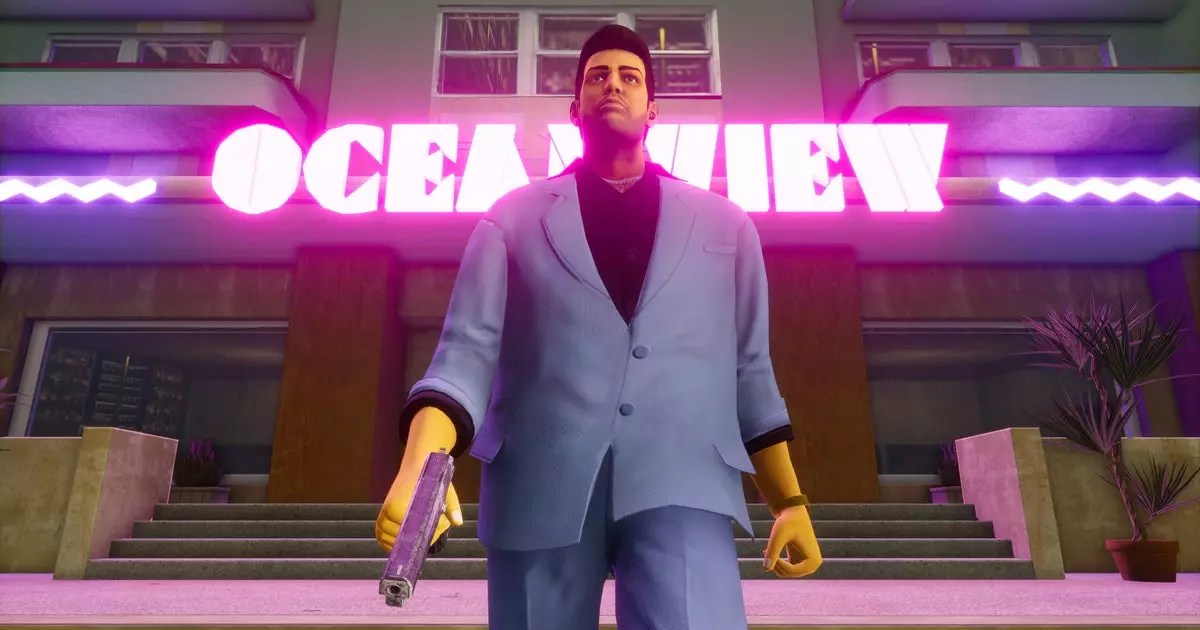Reflecting on the iconic *Grand Theft Auto* (GTA) franchise inevitably brings back a flood of memories, particularly from its earlier titles that paved the way for the open-world gaming genre. One vivid recollection involves a giggle-inducing encounter in *GTA 3* where a friend hilariously attacked a fallen police officer with a baseball bat. This combination of ludicrous action and profound freedom shaped countless teenage experiences and, fundamentally, demonstrated the game’s unparalleled ability to draw laughter from chaos. Such moments underscore the radical shift in gaming that *GTA* represented, marking a departure from rigid narratives to a more immersive, chaotic sandbox experience that allowed players to explore moral ambiguity in an exaggerated urban landscape.
Despite the nostalgia, it’s hard to overlook the disappointing rollout of *Grand Theft Auto: The Trilogy – The Definitive Edition*. While the original titles have been celebrated for their innovative gameplay and rich storytelling, the remastered versions struggled to meet the expectations set by their forebears. Players returning to these classics found themselves grappling with technical issues and questionable design choices that drew criticism from both fans and newcomers alike. It’s particularly disheartening when a beloved series fails to manage its legacy effectively, prompting one to wonder if revisiting these earlier installments is worth the effort—especially when marred by a lackluster remaster.
In an effort to improve the experience and perhaps appease the disillusioned fanbase, Rockstar recently announced an update featuring the ‘Classic Lightning’ mode. Originally unveiled in the mobile versions of the remastered trilogy, this feature aims to reinstate the nostalgic atmospherics of the original titles. Here, the hope is that the ‘Classic Lightning’ mode will evoke the same sense of ambiance that long-time players cherished. However, it appears that the update has generated controversy beyond mere graphics; community chatter suggests that it led to the exclusion of the developer, Grove Street Games, from splash screens, raising concerns over transparency and fairness within the corporate structure. These choices leave many gamers feeling disgruntled, exemplifying the disconnect between corporate interests and player sentiments.
Looking Ahead: The Future of GTA
Amid these controversies lies a glimmer of anticipation for the future of *GTA*. Take-Two Interactive, the parent company of Rockstar Games, has expressed “high confidence” in a projected release date for the next installment sometime in autumn 2025. This news has garnered excitement but also skepticism; the franchise has experienced both highs and lows, and fans are cautiously optimistic. As we await the impending release, the community remains hopeful that the future of *GTA* will honor its rich legacy while continuing to innovate. In an era where nostalgia is prevalent but innovation is paramount, the balance will be crucial for retaining a loyal audience and attracting new players.
The journey of *Grand Theft Auto* illustrates not only the evolution of gaming but also highlights the deep emotional attachments that players form with video games. Whether reliving past glories or looking forward to future adventures, the franchise remains a pivotal player in the gaming landscape.


Leave a Reply